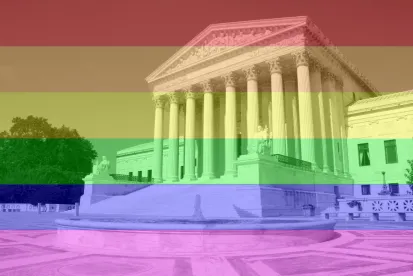In Bostock v. Clayton County, Georgia, the United States Supreme Court held that “an employer who fires an individual merely for being gay or transgender violates Title VII.” With its decision, however, the Supreme Court left unanswered the question of how protections for religious beliefs and expression intersect with its expansion of Title VII’s protections.
Notably, the employer in R.G. & G.R. Harris Funeral Homes, Inc. (one of the three cases consolidated by the Court in the Bostock decision) abandoned its defense based on the Religious Freedom Restoration Act of 1993 (RFRA) at the Supreme Court. In doing so, the Sixth Circuit’s opinion regarding the RFRA claim remains the only circuit court of appeals decision to have addressed the application of the RFRA in this setting.
The RFRA protects an individual’s sincerely held religious beliefs by prohibiting the federal government from substantially burdening an individual’s free exercise of religion, unless it establishes that doing so is the least restrictive means of furthering a compelling government interest. In Harris Funeral Homes, the Sixth Circuit determined that the EEOC enforcing a transgender employee’s Title VII rights did not substantially burden sincere religious exercise because “tolerating [an employee’s] understanding of her sex and gender identity is not tantamount to supporting it.” In other words, complying with Title VII did not endorse the employee’s transgender status. The Sixth Circuit also ruled that presumed customer biases could not constitute a substantial burden. Finally, the Sixth Circuit held that enforcing Title VII was the least restrictive means of achieving the compelling goal of eradicating workplace discrimination.
For now, the Sixth Circuit’s opinion will continue to apply in Kentucky, Michigan, Ohio, and Tennessee, and suggests that, at least under certain sets of facts, the RFRA may not shield employers from liability for claims of discrimination based on homosexuality or transgender status in suits brought by the federal government. If and when a different circuit court of appeals answers the question differently, it is possible this issue could be addressed by the Supreme Court. The question of whether the RFRA may be asserted as a defense by a private (i.e., non-governmental) party may also eventually arrive at the Supreme Court because there is currently a split of opinion by the circuit courts of appeals on that issue.
Outside of the RFRA, the “religious organization exemption” provision of Title VII, 42 U.S.C. § 2000e–1(a), precludes liability for religious organizations and schools from denying employment to workers of other faiths. This exception has been extended to allow a religious organization to terminate an employee who was no longer in good standing with the church. With certain religions having sincere beliefs on sexuality, it is likely that courts will have to decide how this specific provision applies to employment decisions based on sexual orientation or transgender status, which is now protected under Title VII.
The Supreme Court recognized in Bostock that certain employers may feel burdened by its decision and fear that compliance may require them “to violate their religious convictions.” Recognizing the questions left open by its decision and the likelihood of such cases, the Supreme Court noted that “other cases may raise free exercise arguments that merit careful consideration.” Until these cases come to fruition, however, employers should consult counsel and be cautious when relying on largely untested and narrow religious-based exceptions. Employers should also be cognizant of the potential impact such defenses may have on public and workforce perceptions of the organization.





 />i
/>i
